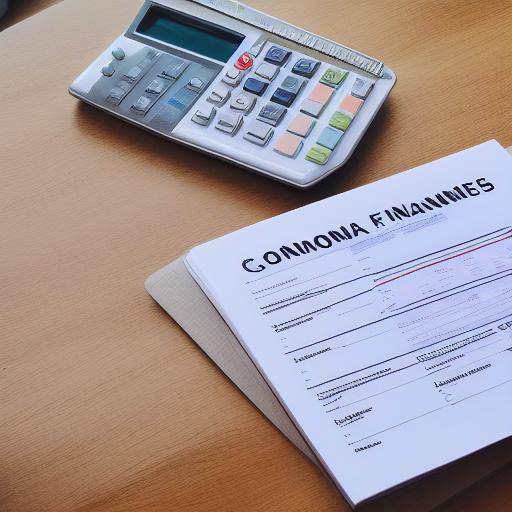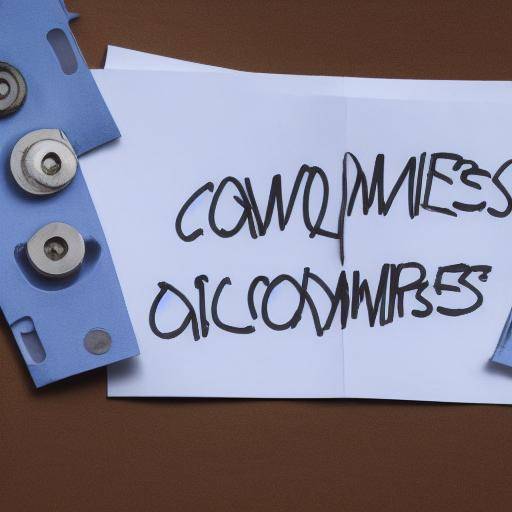
The negotiation of a salary increase is a situation that can generate nervousness and uncertainty in many professionals. Although it is a crucial conversation for career advancement and fair compensation for work done, making mistakes during this process may have negative consequences. In this guide, we will explore common failures when negotiating a salary increase, as well as strategies to avoid them and key lessons that can be learned in the process.
Failure to negotiate a salary increase
Judgement 1: Do not do enough research and preparation
One of the most common mistakes in negotiating a salary increase is not being adequately prepared. This includes not investigating the average wage for the role in the current market, as well as not preparing specific examples of achievements and added value that justify the increase request.
Lack of research and preparation can lead to weak and unsubstantiated negotiation, making it difficult for employers to persuade the need for a wage increase.
Strategies to prevent this failure
- Conduct a thorough investigation into the average wage for the role and region concerned.
- Identify and document significant achievements and contributions to the employer.
- Practice presentation and argumentation convincingly.
Judgement 2: Do not focus on value and achievements
Another common failure is not to effectively communicate the value and achievements that have been made to the company. Only mentioning the personal need for an increase in salary without supporting it with tangible examples of added value may detract credibility from the request.
Strategies to prevent this failure
- Prepare specific examples of successful projects, cost savings, income increase or other relevant achievements.
- Communicate how these achievements have contributed to the success of the company and why they justify adequate compensation.
Judgement 3: Not to be flexible or to consider other forms of compensation
Employers may often not be in a position to increase the base salary, but may offer other benefits or compensations that may be equally valuable. Not being flexible or considering alternatives may limit the possibilities of reaching a satisfactory agreement.
Strategies to prevent this failure
- Be willing to consider other forms of compensation, such as bonuses, additional vacation days, professional development, etc.
- Show an open and responsive attitude during negotiation, seeking solutions that benefit both parties.
Key learning in the negotiation of a salary increase
Learning 1: The importance of preparation and research
By avoiding the failure to do enough research and preparation, we learn the importance of being well informed about the labour market, the value of itself and how to communicate it effectively.
Learning 2: The relevance of focusing on value and achievements
In understanding the importance of effectively communicating value and achievements, we learn to highlight the personal contribution and its impact on the company, which can strengthen future negotiations.
Learning 3: Flexibility and consideration of alternatives
By being flexible and considering alternatives during negotiation, you learn to expand the possibilities of reaching a beneficial agreement and to demonstrate a proactive attitude in managing compensation.
Conclusion
By negotiating a salary increase, avoiding common failures, being prepared, focusing on value and achievements, and maintaining a flexible attitude can be key to successful negotiation. By learning from these mistakes and applying effective strategies, professionals can improve their negotiation skills and get fair and adequate compensation for their work.
Knowing how to avoid common failures, focus on value and achievements, and be willing to consider alternatives, professionals can deal with negotiation with confidence and increase their chances of achieving a favourable outcome.
As mentioned, the negotiation of an increase in salary is an important step in the career of any professional. Avoiding common failures and implementing the learned strategies can make this process more effective and successful.
Frequently asked questions
1. What are the best practices to investigate and prepare for the negotiation of a salary increase?
In researching and preparing for the negotiation of a salary increase, it is essential to collect information on the average wage for the role in the current market, identify specific achievements and significant contributions, and to practice the submission of the application convincingly.
2. Why is it important to highlight the value and achievements in negotiating a salary increase?
Stressing value and achievements is crucial because it helps to support the request with tangible examples of significant contributions, which increases credibility and persuasion during negotiation.
3. Should I consider alternatives to increased wages during negotiation?
Yes, it is important to consider alternatives to increased pay, such as bonuses, additional vacation days or professional development, as this demonstrates flexibility and can lead to satisfactory agreement on both sides.
4. How can I maintain a proactive attitude during the negotiation?
Maintaining a proactive attitude involves being responsive to the options presented, being willing to consider alternatives and seeking solutions that benefit both the employee and the employer.
5. What should I do if my salary increase request is rejected?
If your salary increase request is rejected, it is important to seek constructive feedback on the grounds of rejection and to have an open conversation on how to improve performance for future considerations of increase.
6. When is the right time to negotiate a salary increase?
The right time to negotiate a salary increase is usually during an annual performance review or when significant achievements have been achieved that demonstrate a positive impact on the company.
With all these considerations in mind, professionals will be better equipped to face the challenge of negotiating a salary increase effectively and successfully.
The negotiation of a salary increase can be a crucial point in the professional evolution of anyone. Knowing to identify and avoid common failures, as well as implementing effective strategies, can make the difference in the outcome of the negotiation. With proper preparation, focus on value and achievements, and flexibility to consider alternatives, professionals can address this conversation with confidence and determination.
In the end, the objective is to reach an agreement that recognizes in a fair and appropriate manner the value and contributions of the employee, thereby strengthening the working relationship and promoting an equitable and satisfactory working environment.






















































